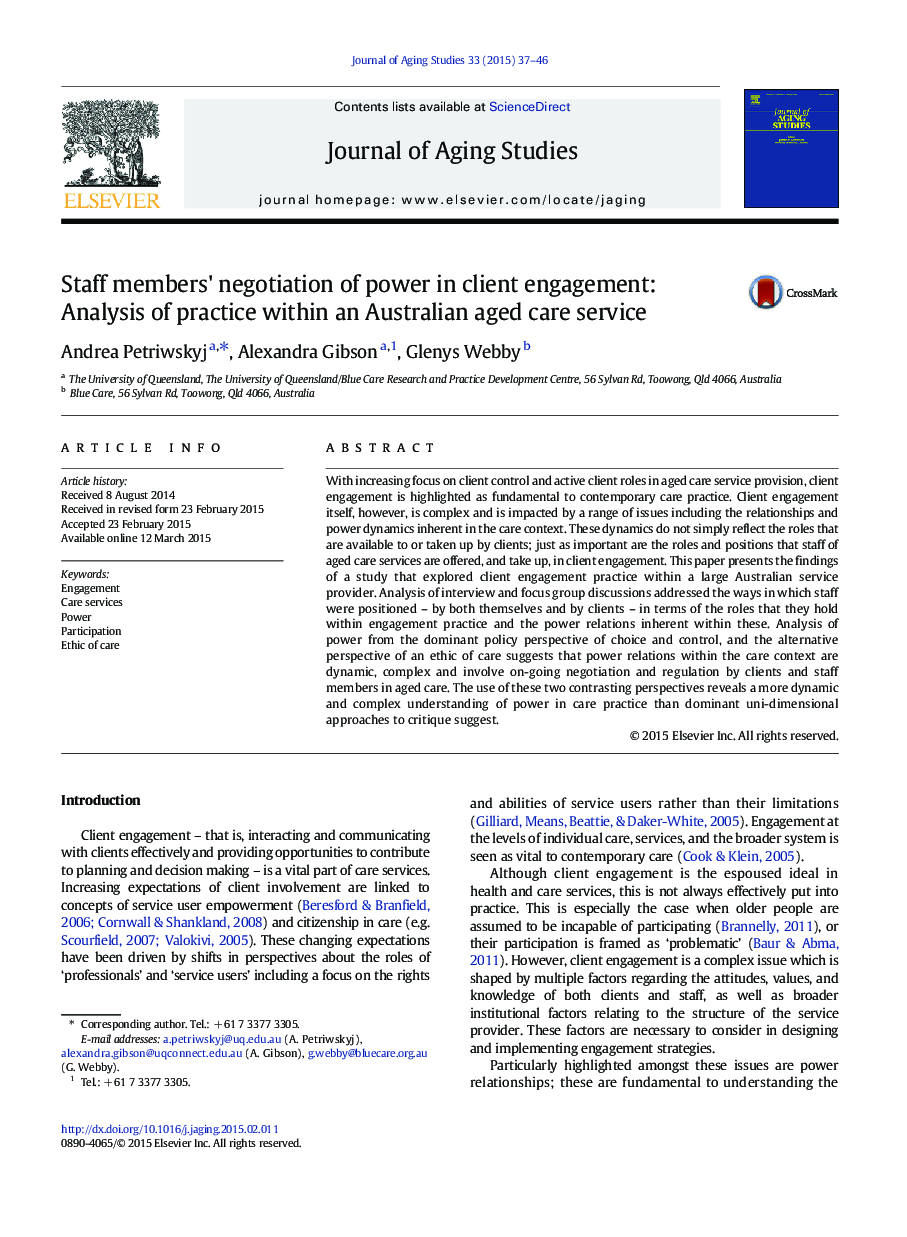| Article ID | Journal | Published Year | Pages | File Type |
|---|---|---|---|---|
| 1081832 | Journal of Aging Studies | 2015 | 10 Pages |
•Client engagement involves complex system–staff–client power dynamics.•Staff roles in engagement are fluid and highlight staff members' negotiation of power.•Contrasting theoretical lenses highlight the complexity of power relations in care practice.•Findings suggest implications for support for staff as well as a deeper understanding of engagement in care practice.
With increasing focus on client control and active client roles in aged care service provision, client engagement is highlighted as fundamental to contemporary care practice. Client engagement itself, however, is complex and is impacted by a range of issues including the relationships and power dynamics inherent in the care context. These dynamics do not simply reflect the roles that are available to or taken up by clients; just as important are the roles and positions that staff of aged care services are offered, and take up, in client engagement. This paper presents the findings of a study that explored client engagement practice within a large Australian service provider. Analysis of interview and focus group discussions addressed the ways in which staff were positioned – by both themselves and by clients – in terms of the roles that they hold within engagement practice and the power relations inherent within these. Analysis of power from the dominant policy perspective of choice and control, and the alternative perspective of an ethic of care suggests that power relations within the care context are dynamic, complex and involve on-going negotiation and regulation by clients and staff members in aged care. The use of these two contrasting perspectives reveals a more dynamic and complex understanding of power in care practice than dominant uni-dimensional approaches to critique suggest.
